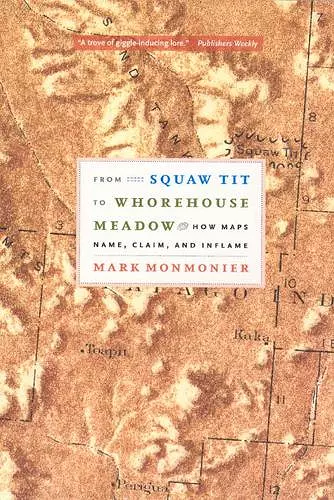From Squaw Tit to Whorehouse Meadow
How Maps Name, Claim, and Inflame
Format:Paperback
Publisher:The University of Chicago Press
Published:21st Sep '07
Currently unavailable, and unfortunately no date known when it will be back

Brassiere Hills, Alaska. Mollys Nipple, Utah. Outhouse Draw, Nevada. In the early twentieth century, it was common for towns and geographical features to have salacious, bawdy, and even derogatory names. In the age before political correctness, map-makers readily accepted any local preference for place names, prizing accurate representation over standards of decorum. But later, when sanctions prohibited local use of racially, ethnically, and scatalogically offensive toponyms, names like Jap Valley, California, were erased from the national and cultural map forever. "From Squaw Tit to Whorehouse Meadow" probes this little-known chapter in American cartographic history by considering the intersecting efforts to computerize mapmaking, standardize geographic names, and respond to public concern over ethnically offensive appellations. Unlike other books that consider place names, this is the first to reflect on both the real cartographic and political imbroglios they engender.
"Engaging....A trove of giggle-inducing lore." - Publishers Weekly "[An] excellent book....[Mark Monmonier] is an able populariser of academic geography, and an expert guide to the bureaucratic, legal and political hierarchies that determine how places acquire, change and lose their names." - Economist "Fascinating....The book will interest anyone who has ever wondered how place names have come to be established by locals, and then come to endure on maps - at least until the advance of political correctness." - Susan Gole, Times Higher Education Supplement "An entertaining and enlightening excursion." - Michael Kenney, Boston Globe "Naming places has always been a political as well as a personal act, but Mark Monmonier's boyishly infectious history of...toponyms maps out the sexism, racism, and imperialism through which we have come to know our landscapes....Monmonier's book shows that maps are no more neutral than any other record of human construction." - Simon Reid-Henry, Times Literary Supplement"
ISBN: 9780226534664
Dimensions: 23mm x 15mm x 1mm
Weight: 369g
230 pages